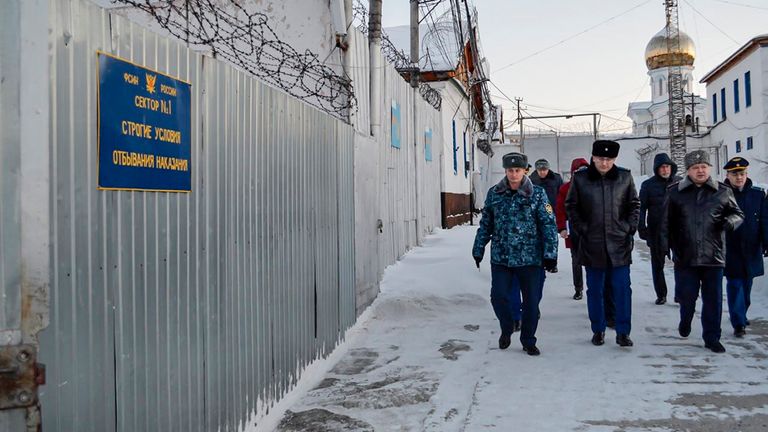Jailed Russian politician Alexei Navalny has been located in one of the country’s toughest prisons after his supporters lost contact with him for over two weeks.
Mr Navalny – considered a leader among those in Russia who oppose President Vladimir Putin – is being held in the IK-3 prison in Kharp, which is approximately 1,200 miles (1,900km) northeast of Moscow and north of the Arctic Circle, according to his spokeswoman.
The prison, known as the Polar Wolf colony, houses those convicted of the most serious crimes and experiences harsh winters with temperatures expected to drop to -28C.
Originally a part of the gulag system of forced Soviet labor camps, the prison is now known for its severe conditions, surpassing those of Mr Navalny’s previous prison located 145 miles (235km) east of Moscow.
“They are trying to make his life as unbearable as it possibly can be,” his spokeswoman Kira Yarmysh said.
Mr Navalny’s lawyer, Ivan Zhdanov, stated that supporters of the 47-year-old have sent 618 requests for information about his whereabouts and suggested that Russian authorities want to isolate him ahead of the upcoming election in March 2024, in which President Putin has confirmed his candidacy.
As a prisoner, Mr Navalny is ineligible to run for office.
His allies, who were anticipating his transfer to a “special regime” colony – the harshest grade in Russia’s prison system – reported that he had not been seen since December 6th.
Russian authorities consider him a convicted criminal, although Mr Navalny denies all charges against him.
Read more:
Why some Russians hope Navalny could overthrow Putin
How he lost appeal against extra 19-year prison sentence
Russia’s opposition praised Mr Navalny for returning to the country in 2021 from Germany, where he received treatment for what Western tests confirmed was a nerve agent poisoning.
He claims to have been targeted in Siberia in August 2020, using novichok, the same substance used in the Salisbury poisonings. However, the Kremlin denies attempting to assassinate him and asserts that there is no evidence supporting his allegations.
His supporters view him as a future leader of Russia, although the extent of his popularity within the country is unclear.
The authorities consider him and his supporters extremists who are seeking to destabilize Russia, and they allege that he has connections to the Central Intelligence Agency (CIA) in the United States.
His opposition movement has been banned, resulting in many of his followers fleeing abroad.



